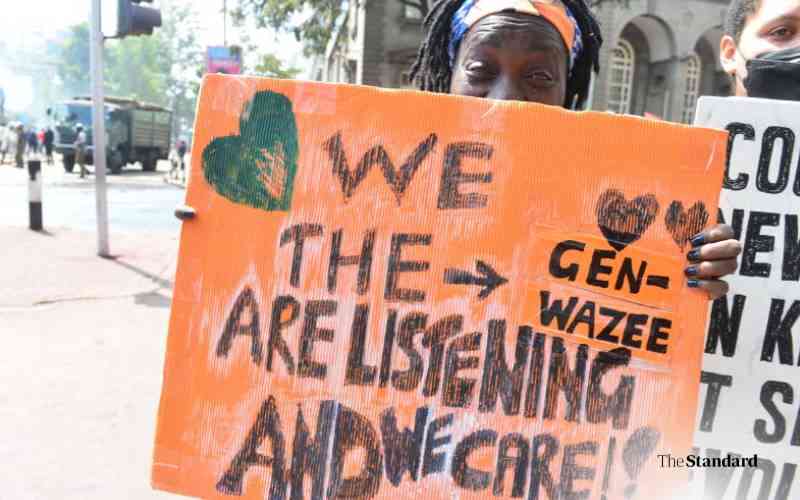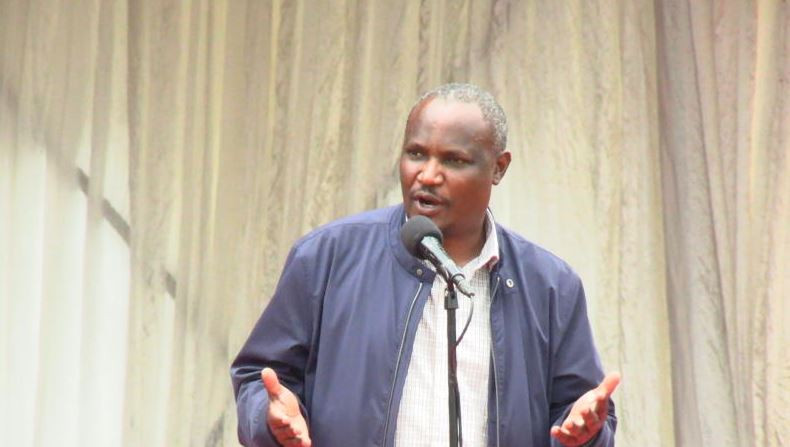NAIROBI, KENYA: Failure to address issues raised by CORD in their proposed national dialogue conference appear to inform both the dissatisfaction with the performance of the Jubilee Government and obviously the CORD push for a referendum, an Infotrak survey shows.
According to the poll, Kenyans are most dissatisfied with the Jubilee government’s handling of the cost of living. Of those polled, 66 per cent said they are not satisfied with the administration’s efforts to reduce the cost of living.
The second issue Kenyans are dissatisfied with most, at 59 per cent, in their Jubilee scorecard, is distribution of resources to counties and state jobs.
The third issue is security, with 52 per cent of those polled saying they feel the Jubilee Government is not doing enough to stem insecurity.
Coincidentally, the three issues top the list of the reasons why Kenyans are supporting the Okoa Kenya referendum drive.
“Asked why they support Okoa Kenya calls for referendum, most Kenyans said they think it will reduce cost of living, address insecurity and afford counties more money in that order,” Infotrak chief executive Angela Ambitho said.




Of the three issues, Jubilee scored best in terms of public satisfaction in the handling of security. Of those polled, 44 per cent said they are satisfied with Jubilee’s efforts to fight insecurity.
POLITICAL INTOLERANCE
The scorecard findings are reinforced by another finding that a majority of Kenyans, 51 per cent, think it was not right for Jubilee to reject CORD’s calls for national dialogue ahead of the Saba Saba rally.
This is compared to 41 per cent of those who believe Jubilee was right to trash CORD demands. Eight per cent said they did not know whether it was right or wrong.
At the Saba Saba rally on July 7 at Uhuru Park in Nairobi, CORD dropped the dialogue demands and formally announced they would instead push for a referendum. Most of the ‘dialogue issues’ were transformed into the ‘referendum issues’.
“Nyanza, Coast and North Eastern regions recorded the highest incidence levels of those who think the Jubilee coalition was not right in rejecting the request for national dialogue at 66.9 per cent, 60.5 per cent and 60 per cent respectively,” the research concluded.
In the same pattern, Central, Rift Valley and Eastern scored the highest in disavowing dialogue.
Former assistant minister Ndiritu Muriithi blames intolerance among the two main political blocs – CORD and Jubilee – is responsible for the present quagmire.
“It’s unfortunate that intolerance from both sides of the political divide has found a comfortable place. It’s not helpful. Kenyans must learn to discuss and even disagree. Moderation and dialogue is the way to go,” Muriithi, now a businessman and political analyst, told The Standard on Sunday.
Stay informed. Subscribe to our newsletter
The missed opportunity for dialogue theory is also shared by George Omari Nyamweya, a former MP and UDF party member. According to Nyamweya, disrespect for political losers, tyranny of winners and bitterness of the losers is informing the wave of dissatisfaction.
“The bitterness expressed by those excluded and chest-thumping of those who are in Government have driven this country to a situation where intolerance has reached fever pitch. Intolerance invites intolerance,” Nyamweya said.
Nyamweya says the only way out now is to convene a national conference.
“Everybody ought to calm down now. The issues being raised are genuine but the way we are tackling them is way out of place,” he said.
The poll was carried out on 1,000 respondents in five counties.